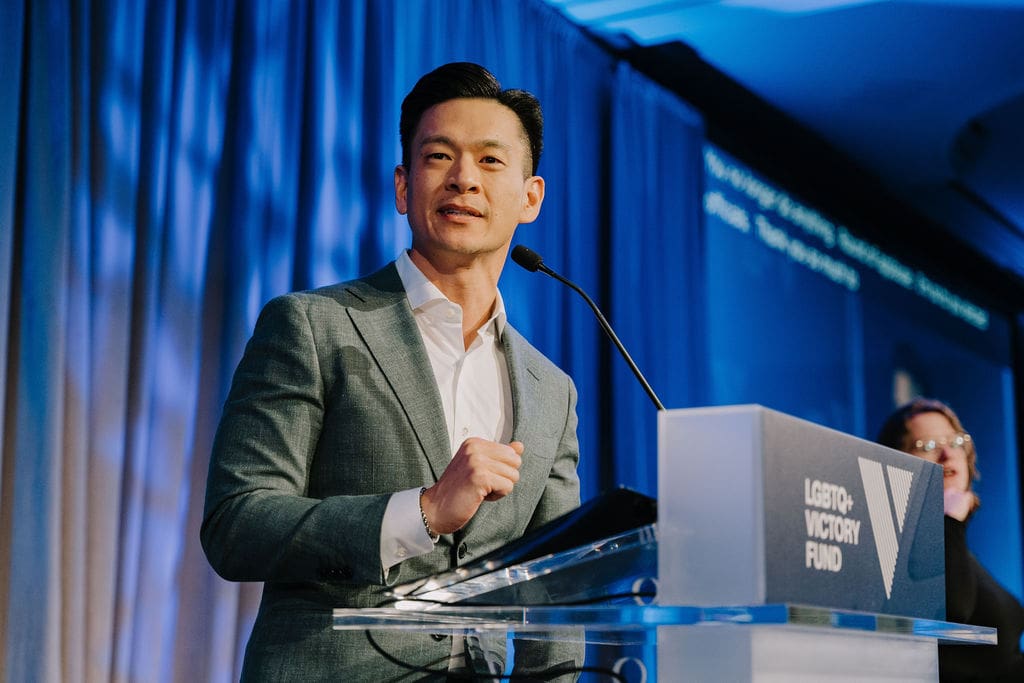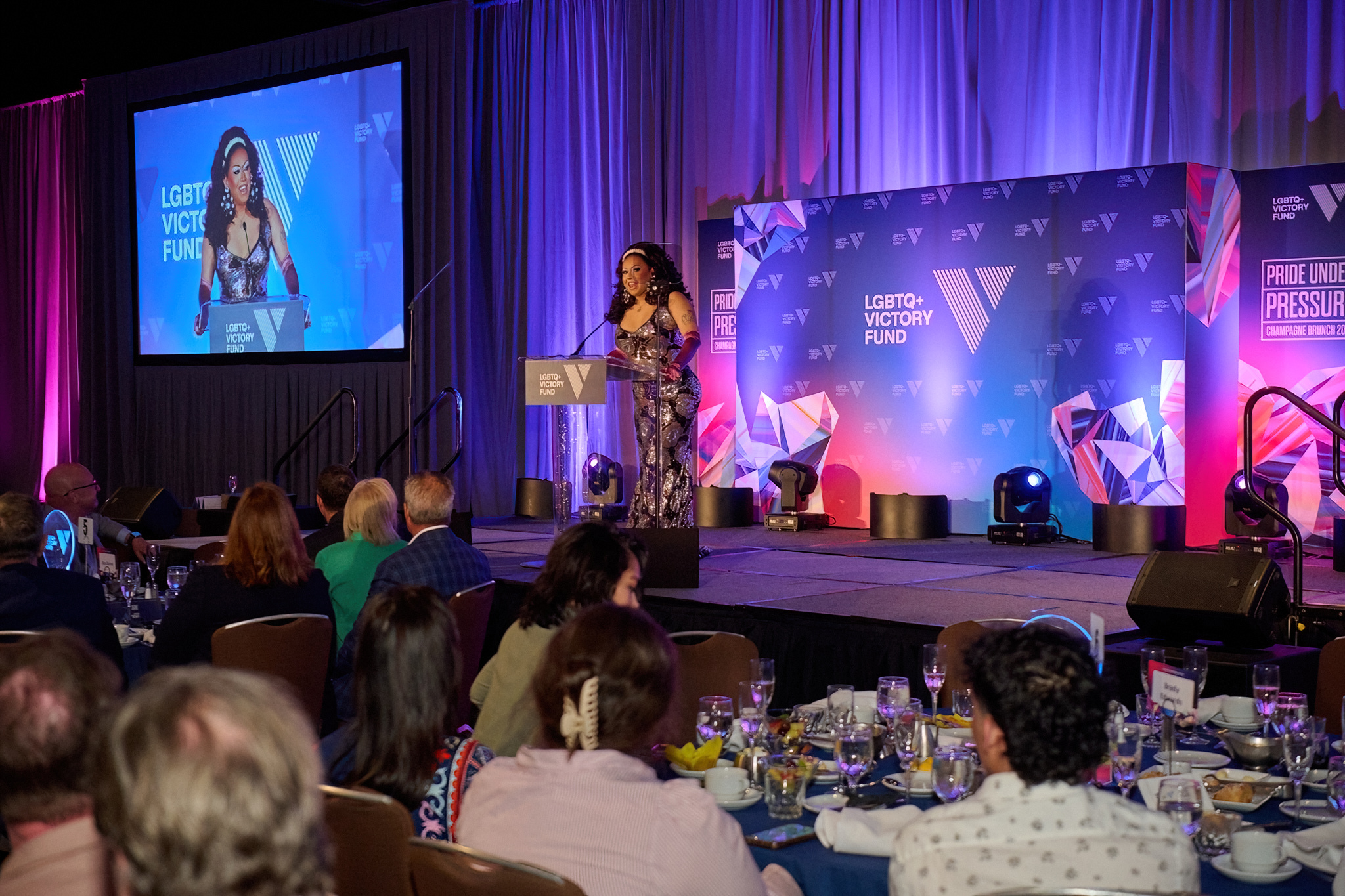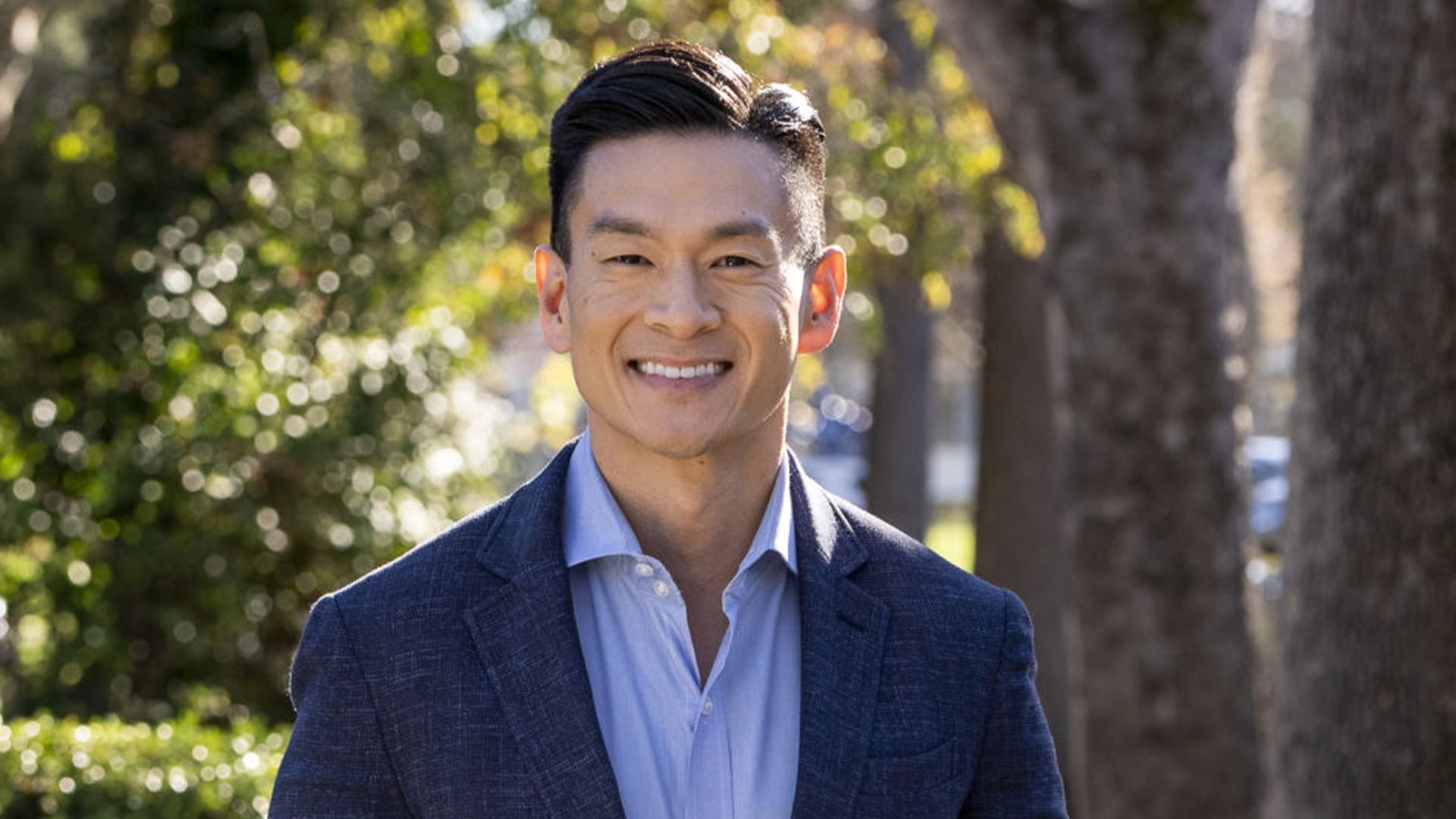
When North Carolina’s HB2 became the first state level anti-transgender “bathroom bill” to pass, we were left wondering how things would have been different if there were an LGBTQ voice present in the legislature. We decided to host our Candidate & Campaign Training in Charlotte this June to help train openly LGBTQ community leaders to run for public office, understanding that when LGBTQ people are elected, laws like HB2 are much more likely to be stopped.
One elected official who understands just how much LGBTQ representation matters is LaWana Mayfield, who serves on the Charlotte City Council. Through her work on the council and with the National League of Cities, LaWana shares Victory’s goal of changing the face and voice of American politics in order to enact progress for LGBTQ people. We spoke with LaWana about her experience as a candidate and elected official in North Carolina, the dynamics in the state post-HB2 and what participants can expect at a Candidate & Campaign Training.
Victory: How did you first decide to run for office?
I was working with a local LGBTQ advocacy group, and we were trying to identify someone openly LGBTQ to run for office, and I was part of that first committee. But I think my team had a meeting without me where they let me know they decided that I should actually be the one to run. So I had never heard of Victory prior to when I was looking to run. My campaign began in March, and there was a Victory training less than five weeks later. Friends and family pulled together to help get me to the training, because it was such a short turn around for me to go through this intensive, weekend-long training.
Victory: So what happens during the Victory Candidate & Campaign Trainings?
Mayfield: Since I had no idea what it looked like to even consider running for office, for me the first thing was being in a room with all of these other people like me who were openly identifying as lesbian, gay and bisexual that said, “Hey, I want to run for office!” or “I want to work on a campaign!” We received this booklet that was filled with information with everything from fundraising and beyond, and how you actually do that work.
All of it was really like drinking water from a fire hydrant with the amount of information you receive. You went through mock trainings, you had to go through mock interviews, you had to come up with a platform, you had to think about why you were running. A lot of people might say they want to run for office, but what’s your platform that’s going to get people to come out and support you and actually write the check to donate to your campaign? Before the training was over, you had to do your very first ask with your counterparts that were in the room with you. So my very first donation came from that room after the training.
Victory: How did it feel making that ask for the first time?
Mayfield: It was nerve wracking! It took a long time, because even after the training, coming back home you have to show a certain level of support before Victory chips in. As a community volunteer for over 25 years in the Charlotte area, I was not used to asking for anything for me. But thanks to Victory, I learned that I wasn’t asking for money for me, I was asking for money for me to do the work of the people.
Victory: How do we get more openly LGBTQ people deciding to run?
Mayfield: The first thing is getting them to better know who Victory is and what work they do. So that people know that there is a support system out there to help you. I think a lot of people don’t even know how to run for office even though they may have a passion and may have been volunteering. And the way politics is set up, a lot of times you think you need to be in a certain financial bracket to run. If you look at who mostly are elected officials, they’re people who are independently financially sound or people who are attorneys or are in executive positions and have all the potential time off that you need to actually show up and do the service. And I don’t think a lot of people realize that local office is a part-time job – and you need the economic means to survive.
Victory: Why is a primary focus on state/local office so critical for LGBTQ progress?
Mayfield: That old adage of you’re either at the table or you’re on the menu is very real! When I worked as a community organizer, specifically with MeckPAC, we had attempted for years to get the city of Charlotte to expand employee benefits and ensure that LGBTQ-identifying employees who were in relationships have access to the benefits. And it never happened. Within six months of me being in office we passed domestic partner benefits. Within six months!
The reality of that really helped change the dialogue. One of my colleagues who I had lobbied before years ago, told me a couple of months after we passed domestic partner benefits, that he and the others had a conversation. And because they had gotten to know me, and they got to know my partner, they saw our relationship and all its love and respect. That’s how they knew that to say “no” to partner benefits, would be a direct “no” to the two of us. We really put a face to it – it was no longer just an idea out of nowhere, because it’s easy to say you don’t know any gay people. Well guess what, there are more than 10,000 openly identifying LGBTQ people or supporters just here in the Charlotte area.
So we’re here and need to be recognized, but the conversation changed by having someone at the table who was elected by the people – just as they were elected by the people. Having a conversation about how this work directly affects people on the ground is vital at the state and local levels.
Victory: Do you think the obstacles you faced as a candidate in 2011 are the same today?
Mayfield: I think it’s a little different. Because honestly, I didn’t face nearly as many obstacles as a lot of other people have faced. But I believe that is because I had worked in the community for so many years around homelessness, and other issues surrounding equity inequality. So it was a lot harder to say that I was just going to be a one-issue person. No one could say that the only issue I would care about would be the “gay stuff.” So they couldn’t write me off, because people were able to stand up for me and say, “I’ve worked with LaWana on these numerous issues in the community for years. And either I did or I didn’t know that she was gay. But what I do know is that she shows up and she does the work.”
So I think we in the LGBTQ community have to be more present in the community at large that we’re saying we want to be a part of. You have to get on boards and local commissions that are appointed positions, you have to show up and volunteer to build that bridge of the issues that are important to everyone: access to jobs, access to a better quality of life – those are things that everyone can relate to. Let’s start there and then we’ll work down to the issue that we’re in a right-to-work state and you can be fired for these reasons and let’s look at the reality of being openly LGBTQ at your office – you can be fired.
Victory: You already mentioned passing domestic partner benefits. What is another of your accomplishments that you’re especially proud of since being elected?
Mayfield: Passing Ban the Box legislation. In 2008, as a community volunteer and organizer, I was part of the group between the local Charlotte School of Law and several community leaders, and we actually wrote the legislation for Ban the Box. But, fast forward to 2013, and we get it passed on Charlotte City Council. So eight years later, from a conversation that I helped start as a community advocate then a part of it being on the Council and having it pass.
Victory: How did you react to HB2 getting passed?
Mayfield: Extremely disappointed. Because it was not about the fear of assault in the restrooms. It was clearly a political move. And it was a way some of our representatives saw as the best way to sure up some of their conservative support. Not to mention, HB2 opened the door for discrimination period. You’ve got to have a way to fight that on a state level, automatically pushing it up to the federal level. It also took the ability away for local municipalities to govern on their own for their constituents.
Victory: So how do we as a community move forward from this?
Mayfield: Well first, we have to change the conversation with the business community. Saying that you’re not going to come to North Carolina, yes, because in the beginning of all this it showed people the financial impact in order for them to know that this was real. But the other side of that is, if progressive companies stay away, they’re not bringing the benefits to protect their employees, they’re not bringing the volunteer hours or the donor dollars into the community to support local organizations that are fighting for equity and equality.
Basically, you’re letting the other side win. Then we’re going to be stuck with a higher unemployment rate. Businesses that have been supporters of the LGBTQ community through job creation and donor hours and dollars, now are suffering. If those businesses have to close their doors, then what happens?
Victory: In the wake of HB2, Victory is coming to Charlotte to host a Candidate & Campaign Training. What are you most looking forward to that weekend?
Mayfield: For me, to be in the room and help other people who may be nervous about the idea of running. To help them, tell them my story, and to say, whatever the idea of a politician is – get rid of it! Because on paper, I’m not that person. At all. And yet I’m going into my third term, my fifth year of being in office, and am still making change.
For them to know, that if you utilize and take advantage of every opportunity in front of you, starting with this training, you can be a successful candidate, a successful campaign manager, a successful policy maker – all around the issues that are most important to you.
—
Are you ready to run? Apply here to join us in Charlotte on June 23-26!


